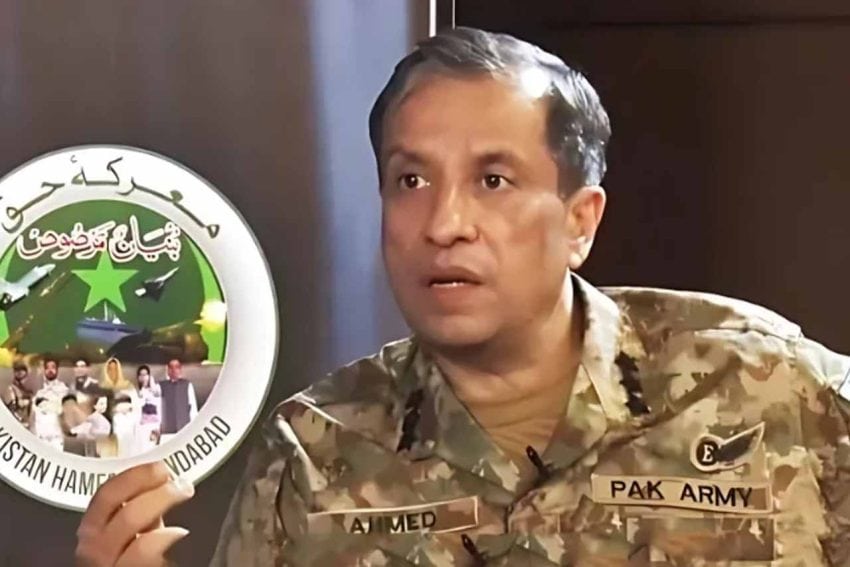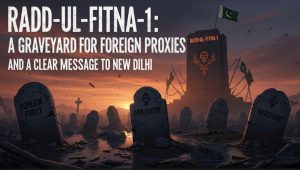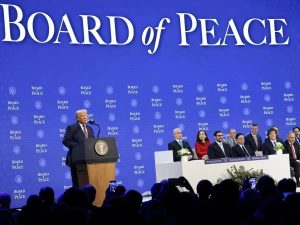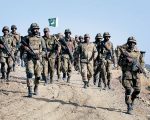Imagine living with a wound that never gets the chance to heal. For years, that has been the story of Pakistan. We have fought a relentless battle inside our own home—against the terrorists who seek to tear it apart, and against the shadowy neighbor who keeps handing them the matches. We have buried our dead, comforted the grieving, and watched as the world looked on, seemingly indifferent to our suffering. But the time for suffering in silence is over. A change is in the air, a sense that we are no longer alone with this truth. Our leaders are now giving voice to the reality we have all lived, not just to expose an enemy, but to begin the long and difficult journey of reclaiming our nation’s very soul.
Exposing the Proxy War: From Covert to Concrete
In a definitive interview with Al Jazeera, the Director General of Pakistan’s ISPR, Lieutenant General Ahmed Sharif Chaudhry, moved beyond accusation to confirmation, articulating with precision the nature of India’s state-sponsored proxy war. This was reinforced by the Chief of Army Staff, Field Marshal Asim Munir, laying bare India’s “nefarious agenda” of destabilization. This is no longer a matter of debate; it is a position grounded in years of intelligence, captured agents, and undeniable patterns of violence.
The tragic, recent murders of innocent laborers from Punjab in Balochistan are a harrowing testament to this brutal strategy. These are not random acts of terror but the calculated outcomes of a foreign policy doctrine designed to sow ethnic discord and chaos. The hand behind this policy has a name: Indian National Security Advisor Ajit Doval. The “Doval Doctrine,” a blueprint for exporting terrorism under a cloak of plausible deniability, has been laid bare. Its brutal application on Pakistani soil is the grim proof of its existence.
What Pakistan has endured for decades is now being understood globally, as India’s campaign of extra-territorial assassinations faces scrutiny in countries like Canada and the United States. This international exposure validates Pakistan’s long-standing position: these are not rogue operations but a systematic approach of a state that uses murder as an instrument of policy.
A Battle for Belief: Reclaiming Faith from Fanaticism
Critically, this national reckoning is not solely focused outward. It involves an equally resolute front on the ideological battlefield. By branding extremist factions like the TTP as “Fitna al-Hindustan,” the state and military have enacted a profound national purification.
This is far more than a new label. It is a direct and potent indictment, explicitly linking the sedition (Fitna) tearing at the nation to its source across the border: Hindustan. Words have power, and for decades, terrorists have twisted the most beautiful words of our faith into weapons. By branding them as agents of a foreign-sponsored “Fitna,” we are finally taking those words back. Pakistan is drawing a clear, bright line in the sand for everyone to see. It is a powerful declaration from a people refusing to have their identity hijacked. Let there be no more confusion: these groups do not stand for God; they stand for an enemy agenda. They aren’t martyrs dying for a cause; they are traitors selling their souls for one. When the Army says it will defend our ideological frontiers, it’s speaking for every Pakistani who has longed for this clarity. It is a vow to protect our faith from the fanatics who seek to defile it.
The Nuclear Shield: A Cornerstone of Peace
Amidst the exposure of covert warfare and the fight for its internal narrative, Pakistan’s leadership remains unequivocal about the nation’s ultimate guarantor of stability: its nuclear program. Lieutenant General Chaudhry described this capability as “invincible,” reinforcing that it is a defensive shield and the very cornerstone of regional peace.
This deterrent is not a bargaining chip but an absolute necessity in the face of India’s proven aggression and conventional military superiority. This isn’t about starting a fight; it’s about making sure one can never be started against us. When a neighbor openly plans for a lightning-fast invasion, a strategy like “Cold Start,” you don’t hope for the best—you ensure that such a war becomes unthinkable. This carefully guarded shield isn’t just a weapon; it’s the guardian that lets our people sleep at night. It is the silent, constant promise that our peace doesn’t depend on the goodwill of a hostile neighbor, but on our own resolute strength to protect our home.
A New Chapter of National Will
The convergence of these messages marks a true turning point. For too long, Pakistan’s narrative was overshadowed, its sacrifices ignored, and its legitimate security concerns dismissed. Now, speaking with the clear and unwavering voice of a resilient people, Pakistan is re-asserting its story.
This is more than a series of interviews or statements. It is a declaration of national will, channelling the spirit of a people who have withstood decades of bloodshed without surrendering their dignity. The game of shadows is over. The truth of India’s proxy war is out in the open. Pakistan has drawn its lines—against foreign aggression and internal sedition—and stands ready: for justice, for peace, and for the fight that others continue to bring to its door.














